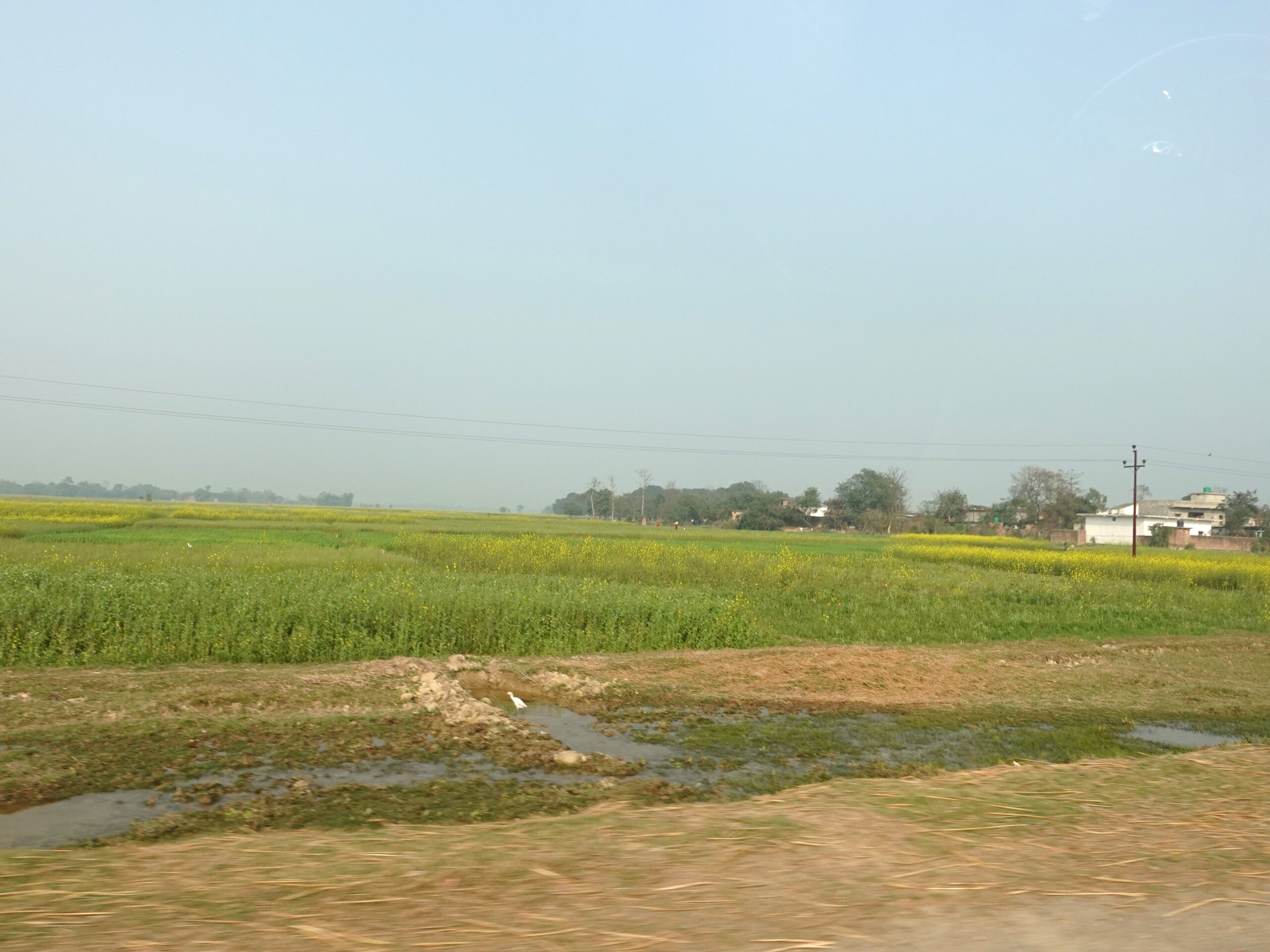The Life of Buddha (Shakyamuni Buddha) as Seen in Local Photographs] ⑹
⑹How Buddha's ordination took place - Channa the horsecho and his beloved horse Kantaka on a late night journey.
Buddha's Ordination - How did Buddha leave the castle? Bacho Channa and his beloved horse Kantaka.
After the birth of Rahula with his wife Yashodhara, Buddha finally decides to leave home.
As I mentioned in a previous article, the Buddha had already strengthened his longing for ordination after his "Shimonsyutuyu". He must have also been concerned about the future of his country. He must have foreseen that even if he succeeded to the throne, he would sooner or later be destroyed by a great power.
Then, late one night, Buddha finally decides to take ordination.
First, Buddha went to his trusted horse master Channa. He opened his speech by saying, "Channa, I want you to bring my beloved horse, Kantaka, here as quickly as possible. I am leaving the castle today.
Channa, who had been strictly ordered by King Suddhodana not to let Buddha out of the house, but in the presence of Buddha, he cannot by any means dismiss his appeal. He brings his beloved horse, Kantaka, as Buddha wishes. Channa, a kind-hearted horseman, gently calls out to Kantaka and admonishes him to serve his master. Kantaka responded by walking quietly without a single whinny or footstep.
After preparing themselves in this way, the two finally attempt to escape from the capital city.
However, King Suddhodana usually kept the gates tightly closed at night. This was a normal measure for security reasons, but it was also strictly enforced for fear of Buddha's ordination.
But when the Buddha came to the gate, it opened spontaneously, without any guards, and without anyone's hands touching it. It was as if the gods were pleased to see Buddha's ordination.
Having passed through the walls of Kapilavastu without any obstacles, the Buddha turned around and said, "I have come to the place where the Buddha is.
If I do not see the other shore of life and death, I shall never again enter this Kapilavastu."
Buddha took his first step with a strong determination not to return here again unless he attained the state of enlightenment. But this could also be taken as a vow, "I will be enlightened and I will definitely come back here. This is something we can all feel. If he really hated his hometown and was ordained, he would not say this. It is because they love their hometown and are proud of it that they definitely want to come back and be successful.
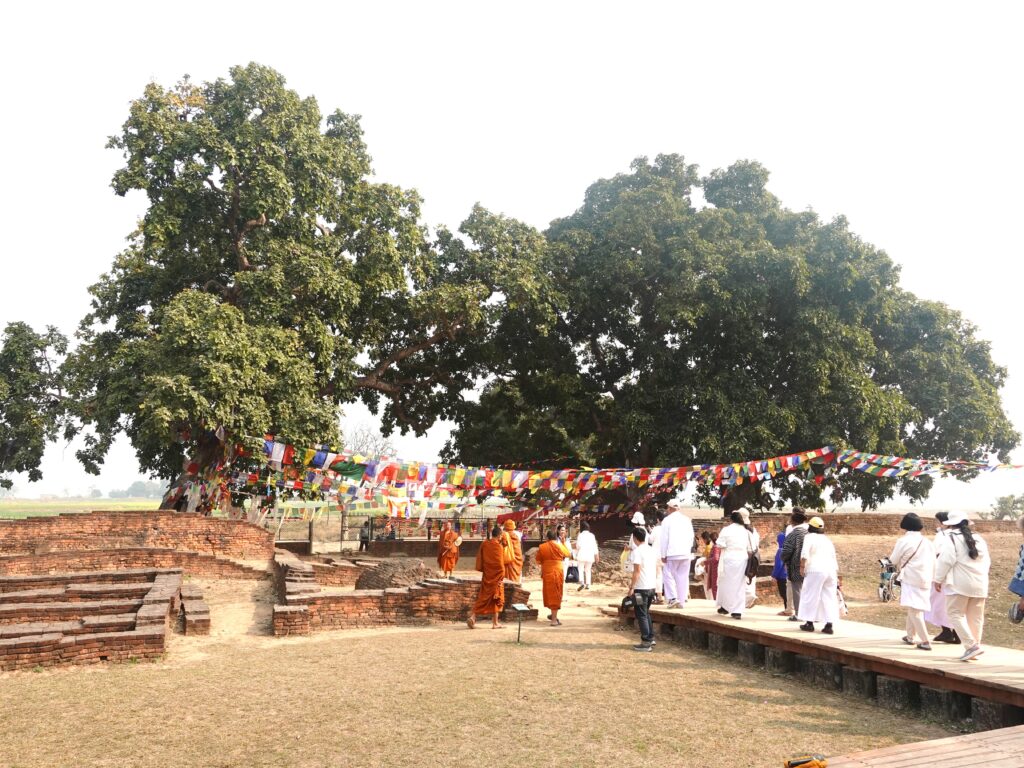
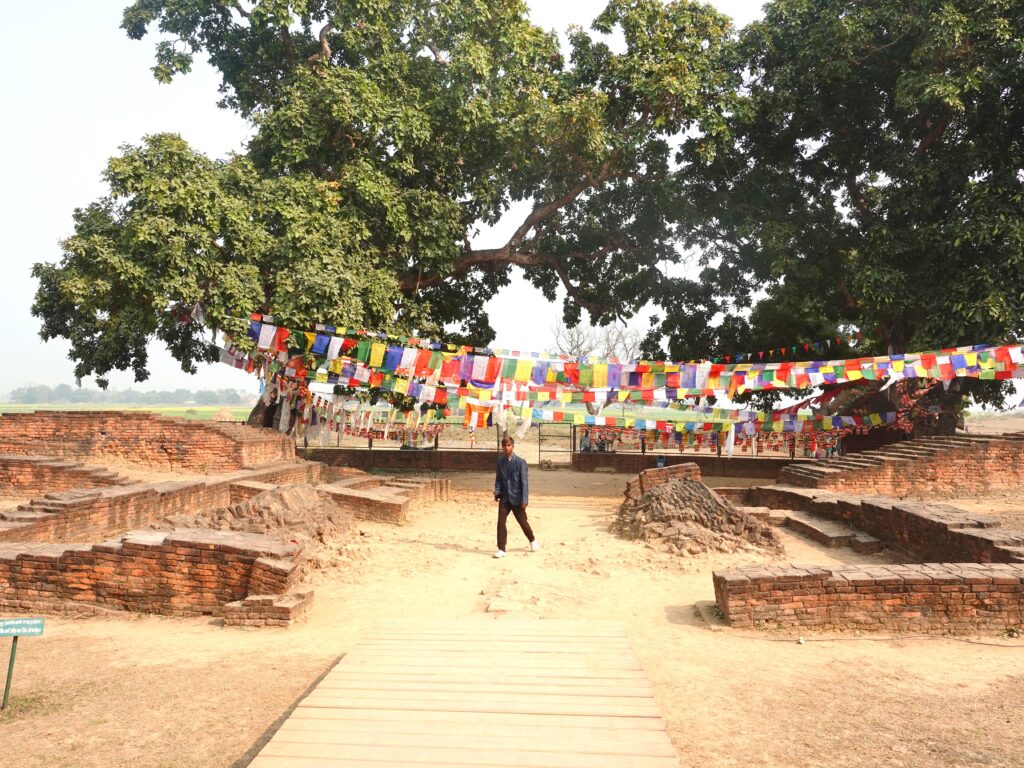
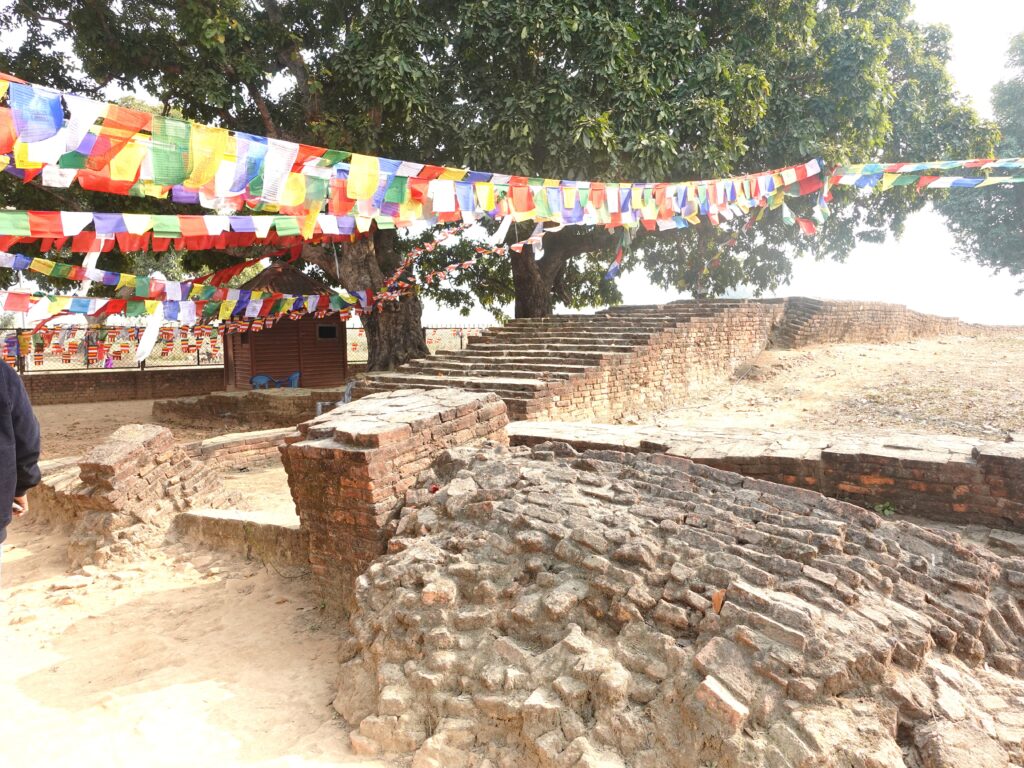
This is the gate through which Buddha is said to have passed when he was ordained. Of course, this is a restored version, but one can imagine that the walls and the gate were of a certain scale. It must have been a miracle that this gate was open only on this night, and that he was able to pass through without being stopped by the gatekeeper.
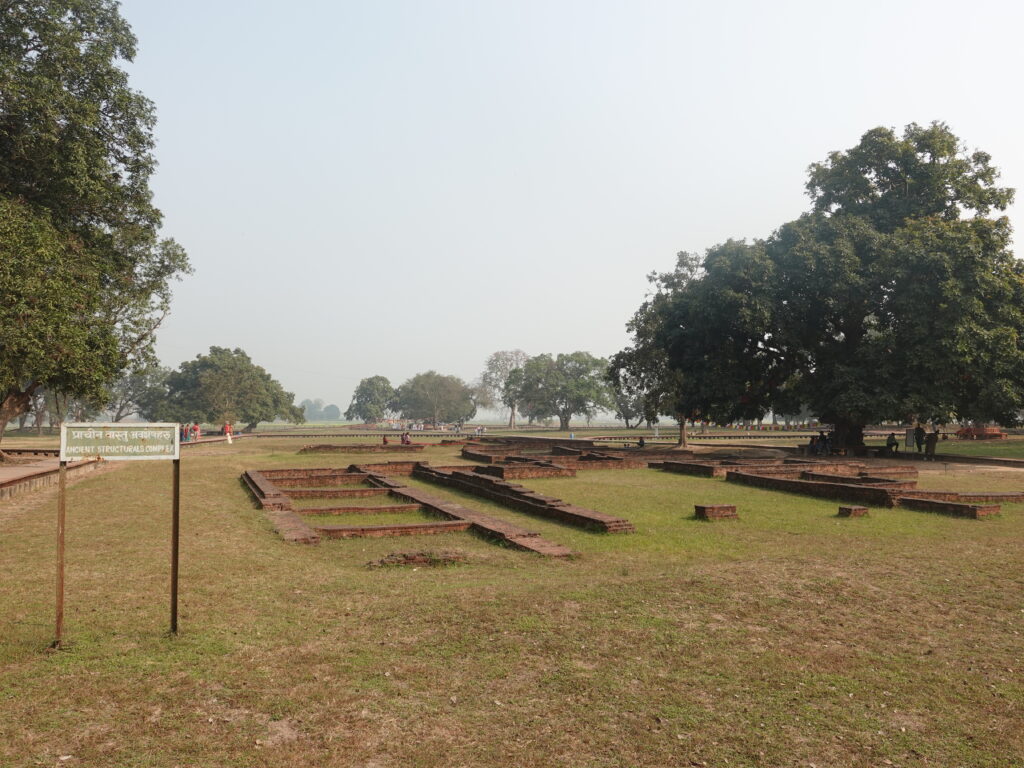
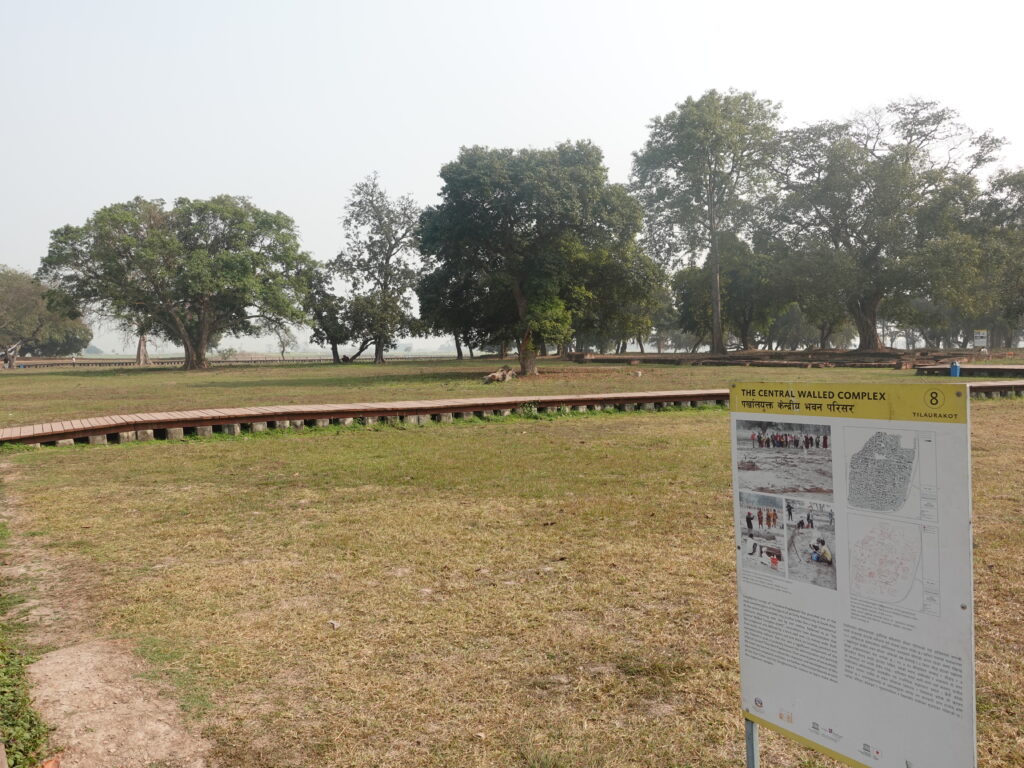
However, I would imagine that there was some cooperation here from Yashodhara.
As I mentioned in my previous article, Buddha's Palace was right in front of King Suddhodana's palace. Moreover, Buddha's Palace is much smaller than we imagined. It is no wonder, for a palace like the one in the Arabian Nights could not have existed in the small country of Nepal 2,500 years ago. It is nearly impossible to escape from such a small palace without being noticed, and even more impossible to escape on horseback with the king's palace in front of you. According to some Buddhist traditions, Yashodhara, who was living with the king, was sleeping, but there are many Buddhist traditions that say nothing about this. In other words, we do not know what condition Yashodhara was in at this time. As I have said many times, there are too many theories in the Buddhist tradition. I am sharing what I think is the Buddha's biography among the various theories.
However, as I mentioned earlier, if she was cooperating with Budda, it makes a lot of sense. She could have arranged a time when Buddha was out of sight, and she could have also arranged for the gate to be opened. I can't help but wonder if there were other people who helped Buddha escape from the city. This was something I felt only because I walked there.
Buddha's Shaving. Becoming an ordained practitioner
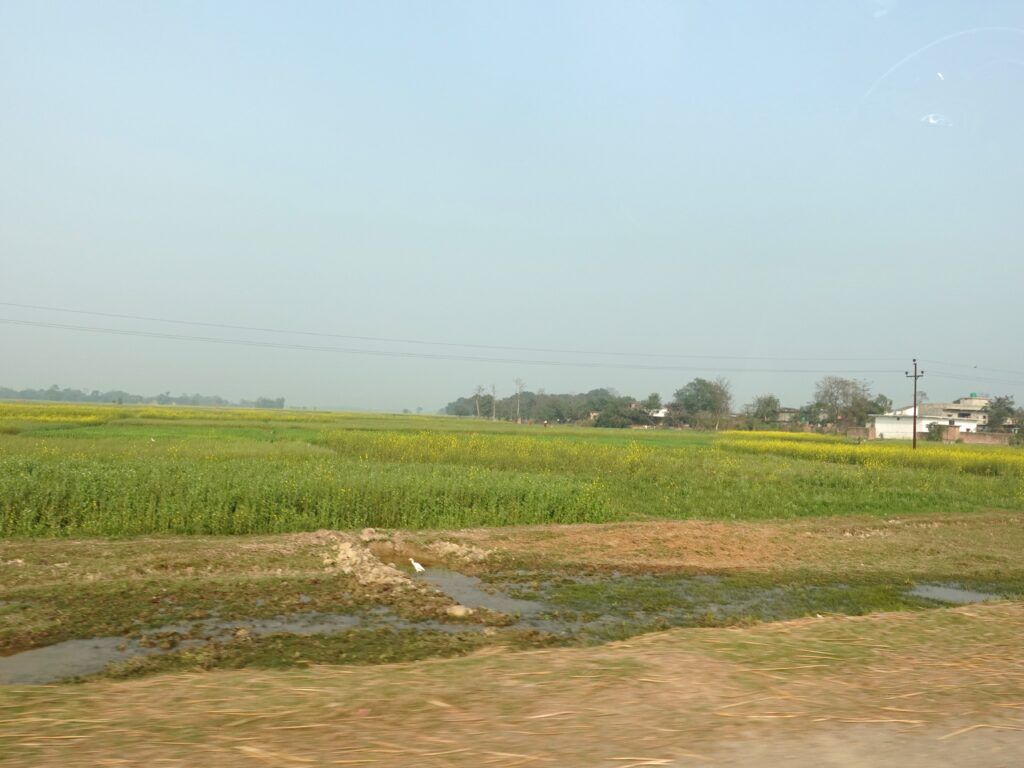
Safely out of Kapilavastu, Buddha and Channa continue to drive their horses.
When they reach a forest on the outskirts of the city, where their pursuers will not be coming soon, Buddha finally says goodbye to Channa and Kantaka.
You have shown your loyalty to me, my friend, and your own courage.
Although our goals are quite different, I was struck by your loyalty and love for your master.
There are those who are competent without respect. There are also those without ability but with a heart of loyalty. However, a person like you, who has both the ability and the heart of loyalty and love, is hard to find in this world.
Therefore, I am pleased with this noble deed of yours. Such was your heart toward me, and you had no regard for reward. (omitted).
Not much needs to be said. In short, you have done a really good thing for me. I want you to hitched your horse and go home. For I have come where I wanted to come."
Kodansha, Yuichi Kajiyama, Nobuhiko Kobayashi, Musashi Tachikawa, Katsumi Omaki, Translation "Complete Translation of Buddhacharita" P65-66
Buddha thus took care of Channa and gave him his own jewelry. He also gave him a parting gift to say goodbye to his father, the king.
But Channa, too, is not quick to back down. He makes a final persuasion to keep his beloved Buddha from leaving.
'Master, my heart sinks like an elephant sinks in the mud of a river.
How many tears can your decision not cause? Even a heart made of iron can shed tears, so much more so in a heart obsessed with love.
I say this because there is a great difference between the delicacy of your palace bed and the ground of the forest of toil, covered with the edges of sharp dalba grass leaves.
I brought the horse to you because I was forced to do so by the hand of God, my master.
Knowing your determination, why would I willingly take this horse, the very sorrow of the people of the city of Kapilavastu, back with me?
Therefore, do not abandon the One who is strong in arms, the old king who loves and loves his children, as if he were an unbeliever abandoning the righteous teaching.
Do not forget the queen, your stepmother, who grew tired of raising you, as an ungrateful person forgets a kindness.
Do not abandon your chaste queen with her infant son, who is full of virtue and the admiration of her family, as if she were a cripple who has abandoned the goddess of happiness in her hands.
Do not abandon the most prestigious of those who have fame and follow the norms, the young son born of Queen Yashodhara, who is to be praised, as if the prodigal were to abandon the highest fame.
Even if you decide to leave your father and your kingdom, do not leave me, O Mighty One. For your feet are my salvation. (Omitted)
What will the king say when I return to the capital and not with you? Or what should I say to the people in the palace, since they always see you with me?
You said, "Speak of your own iniquities before the king," but how can I speak what is not true about you, who, like the saints, are without fault?
Even if I were to say so, with a bitter, tongue-tied tongue, who would believe it? (Omitted)
For you, who are always loving and always know compassion, it is not fitting that you should abandon those who love you. Please return to us.
Kodansha, Yuichi Kajiyama, Nobuhiko Kobayashi, Musashi Tachikawa, Katsumi Omaki, Translation "Complete Translation of Buddhacharita" P68-69
Each of Channa's persuasions was a very genuine persuasion that really appealed to the emotions.
Especially when Channa first complains, "For there is a great difference between your delicacy, which is worthy of a palace bed, and the ground of the forest of toil, which is covered with the leaf edges of the sharp dalba grass!" I couldn't help but nod my head in agreement. Channa is indeed a sensible person who has a clear view of Buddha. If you think about it, there is no way that Buddha, who had been given a comfortable living environment by King Suddhodhana, could suddenly live in the wild. It is obvious that he would soon break down and become ill. That is why Channa desperately tries to persuade him, "I won't say anything bad about it, so please don't do it.
But Buddha shows no sign of budding.
Even after he finally convinced Channa to leave his father, mother, mother-in-law, wife, and son, who had loved him so much, Buddha's resolve remained unchanged. Buddha's final words to the grieving Channa: "I am not going to leave my father, my mother, my mother-in-law, my wife, and my son.
Do not be sad to say goodbye to me, for all creatures are born differently, but they must part. For all creatures are born in different ways, but they must part.
Death will inevitably separate us from each other, even if I do not voluntarily abandon my relatives out of love.
My mother's efforts to carry me in her belly, to put great hope in me and to suffer so much, were in vain. How far away my mother and I have become!
Just as birds gather and disperse in roosting trees, the coming together of living things always ends in separation.
It seems to me that the meeting and parting of living things is like clouds meeting and then tearing apart again. (omitted).
As such, do not let your hearts suffer. Go, my dear friend, go now. If you have any love left in you, go and come back again.
I want you to tell anyone who cares for me in Kapilavastu. 'Please leave my love for that person. Please listen to his decision.
If you can destroy life and death, you will come back soon. But if you lack the right effort and fail to reach your goal, you will die.
Kodansha, Yuichi Kajiyama, Nobuhiko Kobayashi, Musashi Tachikawa, Katsumi Omaki, Translation "Complete Translation of Buddhacharita" P70-71
How about this? The Buddha has already spoken as if he has a mastery over the problems of life and death for each and every one of us. It is clear that Buddha set out on a journey to realize the truth that transcends the transience of our individual lives.
And not to be missed is alsoMy mother's efforts to carry me in her belly, to put so much hope in me, to suffer so much, have come to naught. How far away she and I have become!"This is the word. Previous article(⑵Buddha's youth in Kapilavastu and the four gates of ordination: why did Buddha wish to renounce his home and become ordained?"As I mentioned at the end of this article, Buddha's feelings for his mother should not be overlooked. His mother Maya passed away seven days after giving birth to Buddha. The word "maya" means "phantom" in ancient Indian language. I think his feelings for his mother, who passed away like a phantom, must have leaked out here.
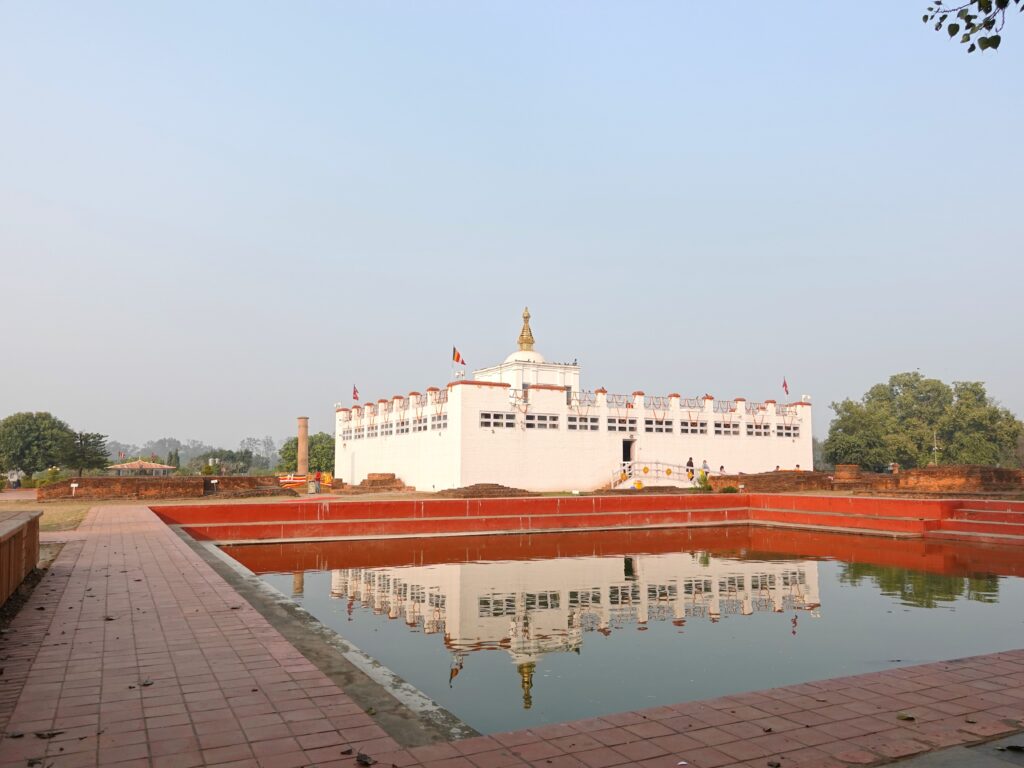
I was born in exchange for my mother's life. Why did my mother die and I live like this?"
Perhaps it was with these thoughts in mind that the Buddha had such an outlook on life.
Hearing Buddha's parting words, his beloved horse Kantaka also shed tears and bade farewell to Buddha. Seeing Kantaka, Buddha said, "Kantaka, do not shed tears. It has been proven that you are a great horse. Be patient. Your efforts will soon be rewarded.
Buddha immediately took Channa's sword and cut off his own hair and the crown tied to it. In ancient India, cutting off one's hair was a sign of renouncing the world and becoming an ordained practitioner. At last, Buddha was transformed from a prince to an ordained practitioner.
Incidentally, Channa and Kantaka returned to Kapilavastu after this, but Kantaka died soon after due to grief. According to tradition, Kantaka ascended to heaven after that, and this must be what Buddha meant when he said, "Hard work pays off.
In the next article, I will talk about the first place the ordained Buddha went to, Rajgir. It was here that Buddha had a fateful encounter. This encounter would have a great influence on the later Buddha's cult.
*Below is an article with reference books on India and Sri Lanka that we have referenced in this travelogue. Please refer to them.
periodA list of recommended reference books to help you learn about Indian history, religion, and culture."
periodA list of recommended books for "those who want to know more about Indian Buddhism."
periodA list of recommended books to help you get to know the Buddhist country of Sri Lanka."
Next Article.
Click here to read the previous article.
Related Articles











